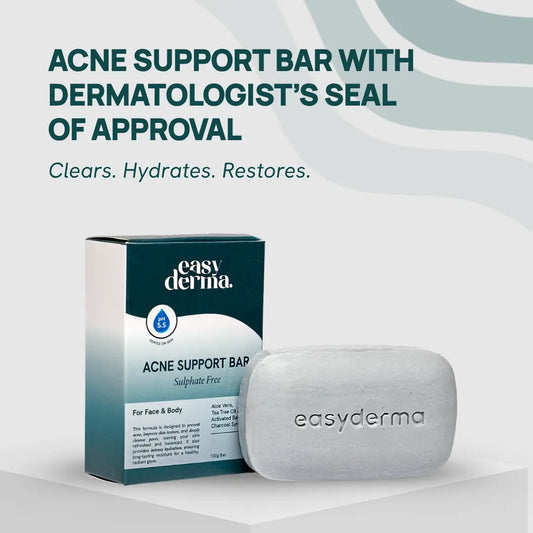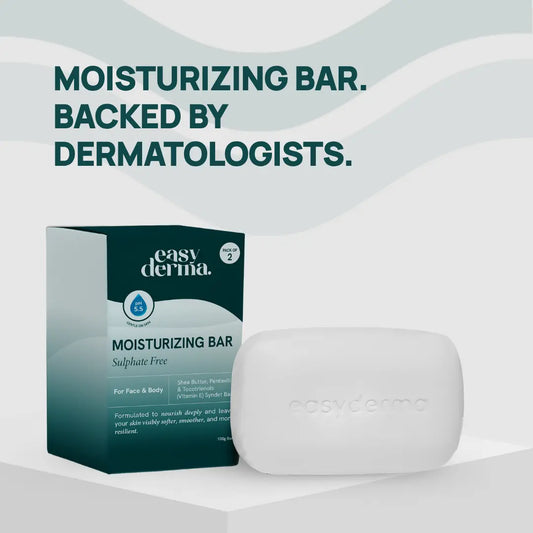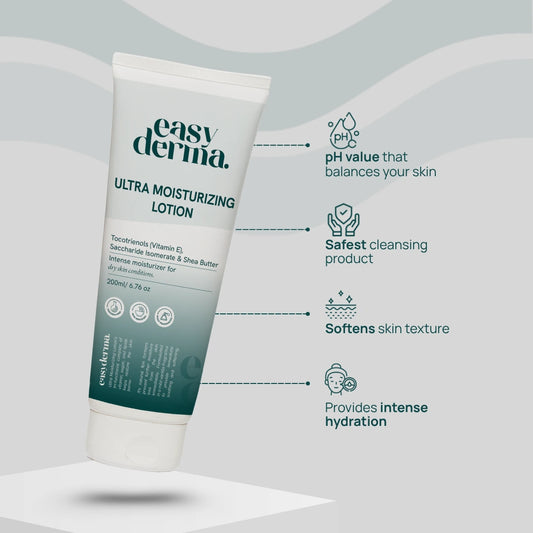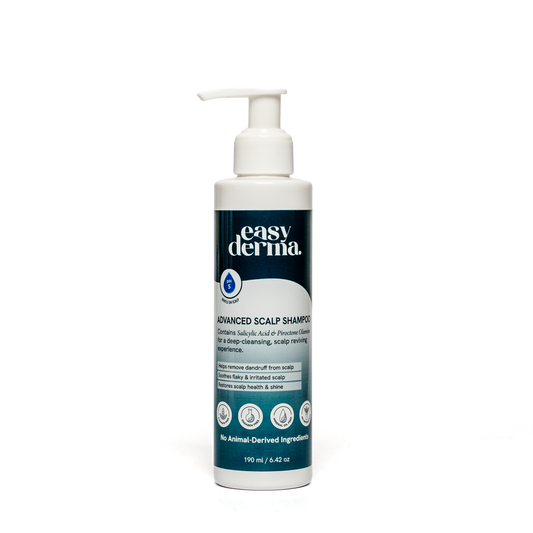When it comes to men's grooming, choosing the right body cleanser goes beyond just feeling fresh. Active lifestyles, gym sessions, outdoor activities, and daily exposure to pollution demand skincare that works as hard as you do. That's where anti-bacterial cleansing solutions come in, designed to deep clean, protect, and maintain healthy skin while tackling sweat, odor, and bacteria buildup.
Why Men Need Anti-Bacterial Cleansing Solutions
Men's skin is naturally different from women's—it's typically thicker, produces more sebum (about 25% more), and tends to sweat more. This makes men more prone to body acne, bacterial buildup, and persistent body odor. Regular soaps often strip away natural moisture, leaving skin dry and uncomfortable, while failing to address the root causes of these issues.
Key Reasons Anti-Bacterial Cleansers Are Essential:
Sweat & Odor Control: Active lifestyles lead to increased sweating, creating an environment where bacteria thrive. Anti-bacterial formulas help neutralize odor-causing bacteria effectively.
Prevents Body Acne: Chest, back, and shoulder acne are common concerns for men. Deep cleansing with antibacterial ingredients helps prevent breakouts by keeping pores clear.
Post-Workout Hygiene: After intense workouts, bacteria multiply rapidly on sweaty skin. Proper cleansing prevents skin infections and irritation.
Daily Pollution Protection: Exposure to dust, grime, and environmental pollutants requires thorough cleansing that goes beyond surface-level dirt removal.
Maintains Skin Health: Anti-bacterial properties protect the skin barrier while keeping it balanced and healthy.
Types of Anti-Bacterial Cleansers for Different Needs
1. For Acne-Prone & Oily Skin
If you struggle with body acne on your chest, back, or shoulders, look for cleansers with these key ingredients:
Activated Charcoal: Acts like a magnet, pulling out dirt, toxins, and bacteria from deep within pores. Particularly effective for oily skin and congested areas.
Tea Tree Oil: Natural antibacterial properties that fight acne-causing bacteria without harsh chemicals. Studies show it can be as effective as benzoyl peroxide with fewer side effects.
Salicylic Acid: Penetrates pores to dissolve dead skin cells and prevent breakouts.
Aloe Vera: Soothes irritation and supports skin healing, reducing redness and inflammation.
What It Does:
- Controls body acne on chest, back, and shoulders
- Deep cleanses without over-drying
- Prevents bacterial buildup that causes breakouts
- Reduces inflammation and redness
- Keeps skin feeling fresh and balanced
Best For: Men dealing with body acne, oily skin, or active lifestyles that involve regular workouts.
How to Use: Lather between your hands or directly on damp skin. Focus on acne-prone areas like the back, chest, and shoulders. Massage gently for 1–2 minutes and rinse thoroughly with lukewarm water.
2. For Normal & Combination Skin
Not all men struggle with acne, but everyone needs effective daily cleansing that protects against bacteria without stripping the skin. Look for balanced formulations with:
Gentle Surfactants: Cleanse effectively without harshness or irritation
pH-Balanced Formula: Maintains skin's natural pH (around 5.5) to prevent bacterial overgrowth
Zinc Pyrithione: Provides antibacterial and antifungal protection without irritation
Glycerin: Helps maintain moisture while cleansing
Key Features to Look For:
- Sulphate-free formula
- Maintains skin's natural pH balance
- Gentle enough for sensitive skin
- Provides daily antibacterial protection
- Suitable for face and body use
- Fragrance-free or contains natural, hypoallergenic fragrance
Best For: Men with normal or sensitive skin who want reliable daily cleansing without irritation.
How to Use: Wet your skin, create a lather, and massage over your body. Rinse thoroughly. Use daily for best results.
3. For Dry & Dehydrated Skin
Many men with dry skin avoid anti-bacterial products thinking they'll make dryness worse. However, moisturizing antibacterial cleansers prove otherwise by combining bacterial protection with hydration.
Key Ingredients to Look For:
Shea Butter: Nourishes and softens dry skin with essential fatty acids
Ceramides: Restore and maintain the skin's moisture barrier
Hyaluronic Acid or Similar Humectants: Bind moisture to the skin for long-lasting hydration
Vitamin E (Tocopherols/Tocotrienols): Protect and repair the skin barrier
Colloidal Oatmeal: Soothes dry, itchy skin while cleansing
What It Does:
- Cleanses away bacteria and impurities
- Hydrates dry, rough skin
- Maintains the skin's moisture barrier
- Leaves skin feeling soft, not tight or stripped
- Suitable for daily use, even in winter
Best For: Men with dry or dehydrated skin who need antibacterial cleansing without the dryness.
How to Use: Create a gentle lather and massage directly onto your skin. Focus on dry areas. Rinse well with lukewarm water and follow with moisturizer.
What to Look for in Men's Anti-Bacterial Cleansers
Not all anti-bacterial products are created equal. Here's what matters when choosing the right cleanser:
Essential Features:
Sulphate-Free Formula: Harsh sulphates (like SLS and SLES) strip natural oils, leading to dryness and irritation. Choose gentle, sulphate-free options that still cleanse effectively.
pH-Balanced: Skin's natural pH is slightly acidic (4.5-5.5). pH-balanced cleansers maintain this balance, preventing bacterial overgrowth and irritation.
Non-Drying Ingredients: Effective antibacterial care shouldn't leave your skin feeling tight or uncomfortable. Look for added moisturizers.
Dermatologist-Tested: Products tested and recommended by skin experts for safety and efficacy.
Appropriate Fragrance: Either fragrance-free or containing hypoallergenic fragrances derived from natural oils rather than synthetic fragrances that can irritate.
Effective Antibacterial Agents: Look for proven ingredients like tea tree oil, triclosan alternatives (like zinc pyrithione), or benzoyl peroxide (for acne).
Ingredients to Avoid:
- Harsh sulphates (Sodium Lauryl Sulphate, Sodium Laureth Sulphate)
- Artificial dyes
- Strong synthetic fragrances
- High alcohol content
- Overly alkaline formulations (pH above 7)
How to Build an Effective Men's Cleansing Routine
Getting the most out of your anti-bacterial cleanser means using it correctly and consistently. Follow this simple routine:
Daily Routine:
Step 1: Cleanse – Use your chosen antibacterial cleanser morning and evening, or after workouts. Focus on areas prone to sweat and bacteria buildup (underarms, chest, back, groin, feet).
Step 2: Hydrate – After cleansing, apply a moisturizer to lock in hydration. Even oily skin needs moisturizer—choose a lightweight, oil-free formula if you're acne-prone.
Step 3: Treat (if needed) – For specific concerns like body acne, maintain consistent use of targeted products and consider spot treatments if necessary.
Pro Tips for Men:
- Post-Workout: Shower as soon as possible after exercise to prevent bacterial buildup. If you can't shower immediately, use cleansing wipes.
- Water Temperature: Use lukewarm water instead of hot water to avoid drying out your skin. Hot water strips natural oils.
- High-Sweat Areas: Focus extra attention on underarms, chest, back, groin, and feet—areas where bacteria thrive.
- Clean Tools: Replace loofahs and washcloths regularly (every 3-4 weeks) to prevent bacterial growth.
- Don't Skip Moisturizer: Even if you have oily skin, moisturizing helps balance oil production. Skipping it can make skin produce more oil.
- Consistency: Use your antibacterial cleanser consistently for at least 4-6 weeks to see results.
Common Mistakes Men Make with Body Cleansers
Mistake #1: Using Regular Soap for Everything
Regular soap is often harsh and can disrupt your skin's natural barrier, with pH levels around 9-10 (highly alkaline). Switch to pH-balanced, sulphate-free cleansing bars or body washes.
Mistake #2: Over-Washing
Cleansing more than twice daily can strip your skin and cause it to produce more oil, worsening acne and odor issues. Stick to morning, evening, and post-workout cleansing.
Mistake #3: Skipping Moisturizer
Cleansing removes dirt but can also remove moisture. Always follow up with hydration, especially after using antibacterial products.
Mistake #4: Not Focusing on Problem Areas
If you struggle with body acne or odor, spend extra time cleansing these areas gently but thoroughly. Don't scrub harshly—gentle, consistent cleansing is more effective.
Mistake #5: Using the Wrong Product
Not all cleansers work for all skin types. Choose based on your specific needs:
- Acne control → charcoal or tea tree-based cleansers
- Hydration → moisturizing antibacterial bars
- Gentle daily care → pH-balanced syndet bars
Mistake #6: Scrubbing Too Hard
Aggressive scrubbing damages the skin barrier and can worsen acne. Use gentle circular motions and let the antibacterial ingredients do the work.
Mistake #7: Not Rinsing Thoroughly
Residue from cleansers can clog pores and cause irritation. Always rinse thoroughly, especially on your back where it's harder to reach.
Understanding Different Antibacterial Ingredients
Natural Antibacterial Agents:
Tea Tree Oil: Proven antibacterial and antifungal properties. Effective against acne-causing bacteria (P. acnes).
Activated Charcoal: Absorbs bacteria, toxins, and excess oil. Best for oily, acne-prone skin.
Neem Extract: Traditional antibacterial with anti-inflammatory properties.
Eucalyptus Oil: Antibacterial and refreshing, good for post-workout cleansing.
Synthetic Antibacterial Agents:
Benzoyl Peroxide: Highly effective against acne bacteria. Can be drying, so use with moisturizer.
Salicylic Acid: Penetrates pores to prevent acne. Good for oily skin and body acne.
Zinc Pyrithione: Broad-spectrum antimicrobial, gentler than many alternatives.
Chlorhexidine: Medical-grade antibacterial, but can be harsh for daily use.
Special Considerations for Active Men
For Athletes and Gym-Goers:
- Shower within 30 minutes after working out
- Pay special attention to areas covered by equipment (back if you do bench press, chest for tight shirts)
- Consider keeping travel-size antibacterial cleanser in your gym bag
- Wash workout clothes after every use
- Use antifungal powder if you're prone to athlete's foot
For Outdoor Workers:
- Cleanse thoroughly after work to remove dirt, grime, and pollution
- Choose cleansers with activated charcoal for deep cleansing
- Don't forget areas like neck, forearms, and hands that get extra exposure
- Consider a two-step cleanse for particularly dirty days
For Office Professionals:
- Morning and evening cleansing is usually sufficient
- Focus on stress-related breakout areas (back, chest)
- Use gentle, pH-balanced formulas to maintain skin health
- Keep moisturizer at your desk for dry office environments
Bar Soap vs Body Wash: Which is Better?
Bar Soap Advantages:
- More eco-friendly (less plastic packaging)
- Longer-lasting and more economical
- Travel-friendly (no liquid restrictions)
- Often more concentrated ingredients
Body Wash Advantages:
- More hygienic (no sitting in water)
- Easier to distribute over large areas
- Less likely to slip in the shower
- Often comes with pump dispensers
The Bottom Line: Both can be equally effective if properly formulated. Choose based on personal preference, but ensure it's pH-balanced and sulphate-free regardless of format.
When to See a Dermatologist
While antibacterial cleansers can help with many skin concerns, some situations require professional help:
- Persistent Body Acne: If acne doesn't improve after 6-8 weeks of consistent antibacterial cleansing
- Severe Breakouts: Painful, cystic acne or widespread breakouts
- Skin Infections: Signs of infection like pus, excessive redness, or warmth
- Unusual Odor: Body odor that doesn't respond to cleansing (could indicate an underlying condition)
- Persistent Irritation: If antibacterial products cause ongoing redness or discomfort
- Fungal Issues: Persistent athlete's foot or jock itch
Frequently Asked Questions
Q: How often should men use antibacterial soap?
For most men, twice daily (morning and evening) is ideal. Add a third cleanse after intense workouts or heavy sweating. Over-cleansing can strip natural oils and worsen skin issues.
Q: Can antibacterial soap cause skin to become dry?
Traditional antibacterial soaps can be drying, especially those with harsh sulphates or high pH. Choose sulphate-free, pH-balanced formulas with moisturizing ingredients to prevent dryness.
Q: Is antibacterial soap necessary for men, or is regular soap enough?
Men who are active, sweat heavily, or struggle with body acne benefit significantly from antibacterial formulas. For others, a gentle, pH-balanced cleanser may be sufficient. The key is matching the product to your lifestyle and skin concerns.
Q: Can I use antibacterial soap on my face?
Some antibacterial cleansers are suitable for facial use, but many are too harsh. Look for products specifically labeled as face-and-body cleansers with gentle, non-drying formulas. Facial skin is more sensitive than body skin.
Q: How long does it take to see results from antibacterial soap?
For odor control, results are immediate. For acne improvement, expect to see changes in 4-6 weeks with consistent use. Skin barrier improvements may take 2-3 weeks.
Q: Can antibacterial soap help with body odor?
Yes, by reducing odor-causing bacteria on the skin. However, if odor persists despite proper cleansing, consult a doctor as it could indicate an underlying condition.
Q: Are natural antibacterial ingredients as effective as synthetic ones?
Natural ingredients like tea tree oil can be very effective for mild to moderate concerns. For severe acne or infections, synthetic ingredients (like benzoyl peroxide) may be more powerful. Both have their place.
Q: Should I use antibacterial soap every day?
Yes, daily use is safe and recommended for most antibacterial cleansers, provided they're pH-balanced and gentle. However, if you experience dryness or irritation, reduce frequency or switch to a milder formula.
The Bottom Line
Choosing the right antibacterial cleanser is essential for men's skin health, especially for those with active lifestyles, body acne concerns, or oily skin. Look for:
- pH-balanced formulas (4.5-5.5)
- Sulphate-free cleansing agents
- Appropriate antibacterial ingredients for your skin type
- Added moisturizers to prevent dryness
- Dermatologist-tested products
Remember: Effective skincare isn't about using costly products—it's about finding the right balance of cleansing, protecting, and maintaining your skin's natural health. With consistent use of a quality antibacterial cleanser matched to your needs, you can tackle sweat, bacteria, and skin concerns while keeping your skin healthy and comfortable.





